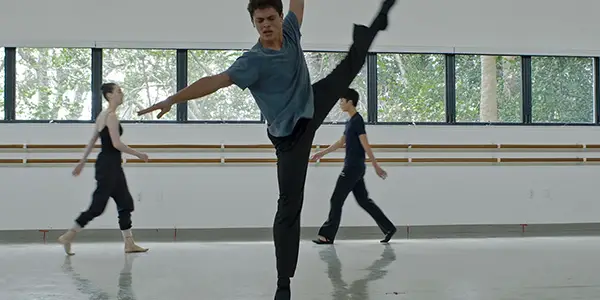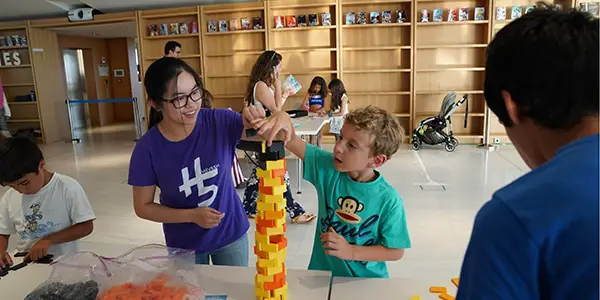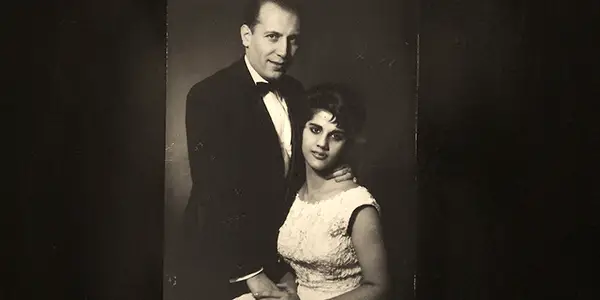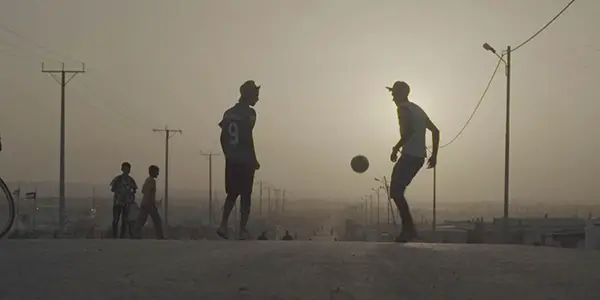San Francisco International Film Festival: Documentary Round Up Part 1

Arlin is an all-around film person in Oakland, CA. He…
The cancellation of the 2020 San Francisco International Film Festival was one of the things that really let me know that COVID was happening and here to stay. Attending the longest-running festival in the Western hemisphere is one of the highlights of living in the Bay Area; it’s something I always look forward to and its disruption was among the first in a year that would see many.
A year later and many of us are still at home, but thankfully SF FILM, following in the footsteps of a number of major festivals who had to make the pivot to virtual, found a way to keep us company. I have to say, it’s a pleasure to host such a prestigious event. The documentary line-up, though truncated by more than 50% from previous editions, offers the mix of high-profile works and new discoveries that have defined the non-fiction programming in my experience attending the fest.
The way they set up the virtual screenings makes the entire program accessible whenever one decides, offering the opportunity to make your own program among the overall selections. I’m excited to take you through my own journey through the documentary program in the order I saw them. (Note: some capsules were limited to 75 words at the request of the festival and filmmakers)
In the Same Breath (dir. Nanfu Wang)

Wang’s previous film, One Child Nation, completely floored me; I was no longer myself, merely a puddle of tears on the floor when I saw it at this fest in 2019. However, this film, which focuses mainly on the Chinese government’s handling of the early days of COVID transmission, is so rife with bad faith arguments and dangerous rhetoric that it had me wondering whether I had been duped in my admiration of the director’s earlier work. I have no doubts that there are valid criticisms expressed in Same Breath, but they are largely obfuscated by a zeal to attack the CCP, at the cost of fully engaging with the humanity of this unprecedented moment. For instance, the film finds reason to be glib and skeptical about free healthcare that saved countless lives during a raging pandemic and an opportunity to sympathize with right-wing extremists in America. A sense of “those who live in glass houses…” permeated the whole viewing experience for me, which of course was happening at home due to the US’s continued state of quasi-lockdown, and I think we should all be vigilant in engaging with Western-produced media about China at a time when there seems to be an escalating cultural cold war between our two countries.
Cuban Dancer (dir. Roberto Salinas)

Much like its protagonist, Cuban Dancer remains primarily concerned with dance, staying focused on Alexis’ training, and is punctuated by scenes of him performing his own choreography. For this reason, one’s reception of the film will likely rest on their interest in dance, but the film shines brightest when it offers Alexis the opportunity to stop moving and speak about the difficulties that come with moving to a foreign land to pursue your dream.
Lily Topples the World (dir. Jeremy Workman)

Workman’s latest finds a surprising amount of emotional depth embedded in a story ostensibly about a YouTuber who sets up and knocks over dominoes. I found it impossible not to get wrapped up in Lily Havesh’s triumphs and marvel at her ingenuity and drive, even if the film does remain largely uncritical about the nature of internet celebrity and the relationships between creators and monopolistic tech platforms like YouTube.
Radiograph of a Family (dir. Firouzeh Khosrovani)

An immensely personal work, Radiograph of a Family charts the relationship between the director’s parents, from courtship through to its natural end. Khosrovani plays with a wide array of non-fiction techniques, including re-enactments, voice-over, and inventive visualization, in order the narrativize her brilliant family archive. In doing so, the director deftly walked a tight rope that could have seen someone with less formal rigor fall into an over-reliance on any one method that might have in turn threatened to overshadow the documentary elements, but here helps to reveal the truth. The result is a remarkably engaging work that weaves together histories both domestic and national, specific and universal.
Captains of Za’atari (dir. Ali El Arabi)

El Arabi‘s first film is a worthy entry into the canon of docs that look at sports as a means of material salvation, and their inherent limits in fulfilling that promise. The film follows Fawzi and Mahmoud, two Syrian teens living in the world’s largest refugee camp, from which the film gets its title. They’re given the opportunity to play football in front of some of the game’s movers and shakers as part of a program that hopes to put global youth on a path towards becoming professionals. The film is strongest in how it communicates the stakes at play, focusing on the young footballers’ passion, and the expressions on their families’ faces while they watch them on TV. Being a film that concerns a large population trying to plan for the future while existing in a state of persistent limbo where little about tomorrow can be known, it does pack a different kind of punch at the moment.
Rita Moreno: Just a Girl Who Decided to Go For It (dir. Mariem Pérez Riera)

Though its style and structure may seem rote, by foregrounding the trauma wrought by Hollywood’s institutionalized racism and misogyny, and how Moreno came to internalize those forces, this film allows us to celebrate her achievements on a level not always found in this style of bio-doc. Of most appeals for me were scenes that allow us to simply enjoy Moreno’s company — appreciating baby bananas, being wowed by craft-service blintzes, or yelling at the TV.
The Last Autumn (dir. Yrsa Roca Fannberg)

The Last Autumn is exactly the kind of underseen direct cinema gem I always hope to happen upon at the Fest. Filmed in a remote part of Iceland where a sheep farm is undergoing its final season as a new generation opts for a life speaking English in urban areas, Fannberg’s film takes time to revel in simple pleasures like the deep-hued swirls created by mixing blueberries in yogurt or repeated puffs off a well-worn pipe. At the same time, the film refuses to omit the harsh realities of farm life, in turn helping to further illuminate the possible reasons for the gradual demise of this specific way of agrarian life. Couldn’t help but think that this would make a nice pairing with the observational classic Sweetgrass (2009), only this time from the opposite perspective of the farmers.
We Are As Gods (dir. Jason Sussberg, David Alvarado)

This directing duo’s last film (Bill Nye: Science Guy), which I saw at the fest in 2017, took an admittedly flawed human and, by giving ample time to his adversaries, elevated him to a level near that of a superhero. In We Are as Gods, Sussberg, and Alvarado engage with a much more contentious figure, science, and tech maven Stewart Brand. The film offers a satisfying mix of archival biography and new footage that focuses mainly on Brand’s championing of the “de-extinction” movement, an idea that no matter one’s stance will capture their imagination. The filmmakers clearly have reverence for Brand and his record of achievements and prognostications, only in this film the portrait contains considerably more ambiguity, inviting the viewer to reach their own conclusions as to whether Brand should be considered bio-tech savior or mad scientist.
Cryptozoo (dir. Dash Shaw)

I usually sneak in a not-a-doc here or there as part of my SFFILM Fest experience, and this year was happy to start off my self curated program with this inventive and dazzling work of animation. Cryptozoo is an immersive film that invites you into its own world without wasting labor explaining how it all works. Most enjoyable though is the film’s clear persistence of vision (Shaw is actually the recipient of this year’s Persistence of Vision Award) that feels rare nowadays for an animated feature that all too often works by committee.
Stay tuned for the second half of the Fest’s doc offerings!
Does content like this matter to you?
Become a Member and support film journalism. Unlock access to all of Film Inquiry`s great articles. Join a community of like-minded readers who are passionate about cinema - get access to our private members Network, give back to independent filmmakers, and more.
Arlin is an all-around film person in Oakland, CA. He received his BA in Film Studies in 2010, is a documentary distributor and filmmaker, and runs Drunken Film Fest Oakland. He rarely dreams, but the most frequent ones are the ones where it's finals and he hasn't been to class all semester. He hopes one day that the world recognizes the many values of the siesta system.













